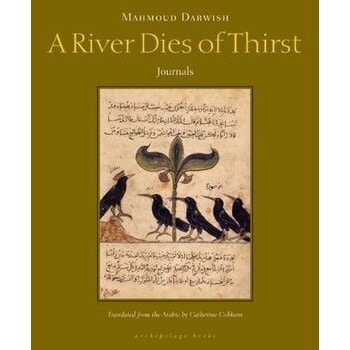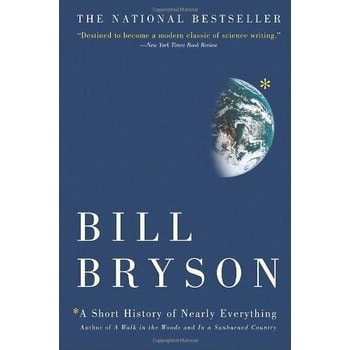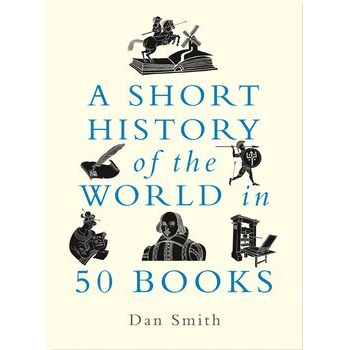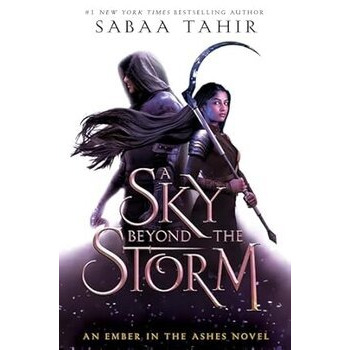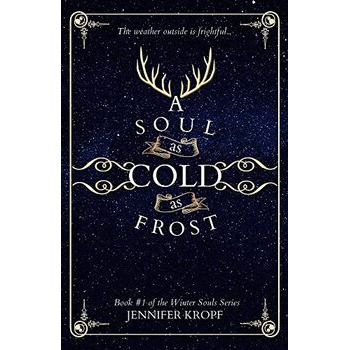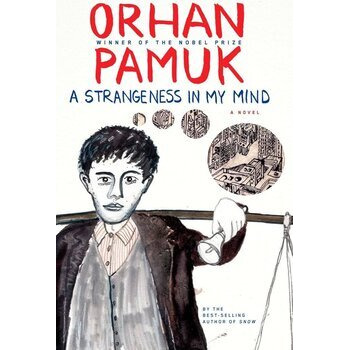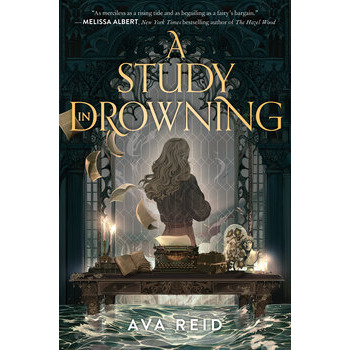A River Dies of Thirst
*A River Dies of Thirst* by Mahmoud Darwish is a powerful collection of prose poems and reflections by the acclaimed Palestinian poet. In this work, Darwish explores themes of loss, exile, identity, and the struggle for a homeland. The book is deeply philosophical, offering poignant meditations on the human condition, nature, and the ongoing Palestinian experience of displacement and yearning. Through a lyrical and emotional style, Darwish reflects on the sorrow of a river, a metaphor for the land and people of Palestine, and the ways in which culture, memory, and survival intertwine. The collection is both a personal and political expression of the pain of diaspora, making it a profound and haunting testament to the resilience of the Palestinian spirit.
A River Dies of Thirst
A River Dies of Thirst by Mahmoud Darwish is a collection of prose poems that reflects the Palestinian poet's deep thoughts on life, identity, exile, and loss. Through evocative and lyrical language, Darwish explores the emotional and spiritual experiences of people living in conflict and displacement. The book touches on themes of memory, longing, and the human condition, weaving personal and collective history into a poignant meditation on the resilience of the soul amidst hardship. With powerful imagery and profound reflection, A River Dies of Thirst is both a testament to the poet's creative genius and a moving exploration of the struggle for belonging and peace.
A Short History of Europe
A Short History of Europe by Simon Jenkins offers a concise yet comprehensive overview of Europe's history, spanning from ancient times to the modern era. The book traces the continent’s political, cultural, and economic evolution, highlighting key events, influential figures, and major conflicts that shaped Europe. Jenkins presents history in an engaging and accessible manner, making it an ideal read for those seeking a broad understanding of Europe's past without getting lost in excessive detail.
A Short History of Nearly Everything
A Short History of Nearly Everything by Bill Bryson is an engaging and accessible exploration of the origins of the universe, the Earth, and life itself. Bryson delves into a wide range of scientific topics, from the Big Bang and the formation of the planet to the development of life and the intricacies of human biology. The book breaks down complex scientific concepts in a clear and often humorous way, making it suitable for readers with little prior knowledge of science. Bryson highlights the remarkable discoveries and fascinating stories behind some of the most important questions in science, all while reflecting on the mysteries that remain. It’s an entertaining and thought-provoking journey through the history of our world and the universe.
A Short History of the World in 50 Books
A Short History of the World in 50 Books by Daniel Smith is a fascinating exploration of world history through literature. The book offers a selection of 50 influential books that have shaped the course of human history, from ancient texts to modern works. Each chapter provides a summary of the book's content, its impact on society, and how it contributed to the development of ideas, culture, and civilization. Smith's approach highlights the power of literature to reflect and influence historical events, making this an engaging and insightful read for anyone interested in both history and literature.
A Sign of Affection, Vol. 1
A Sign of Affection, Vol. 1 by Suu Morishita is a heartwarming and romantic manga that follows the story of Yuki, a college student who is deaf, and her blossoming relationship with Itsuomi, a handsome and charming young man. Despite their differences, the two form a connection that transcends language barriers. Yuki's world is primarily silent, but through her use of sign language and her growing bond with Itsuomi, she learns to navigate the complexities of communication and emotional expression. This volume introduces their tender relationship, exploring themes of love, acceptance, and the challenges of connecting with someone who doesn't share your experience. It's a touching story about understanding and finding love in unexpected places.
A Sky Beyond the Storm
A Sky Beyond the Storm by Sabaa Tahir is the fourth and final book in the An Ember in the Ashes series. The novel continues the epic journey of Laia, Elias, and Helene as they confront the collapse of the Empire and the looming threat of war. With the Empire crumbling, each character faces personal sacrifices and difficult choices that could determine the fate of their world. Laia must make a final stand to protect her loved ones, while Elias struggles with his past, and Helene wrestles with her loyalty to both her duty and her friends. A Sky Beyond the Storm is a gripping conclusion to the series, filled with action, emotion, and the ultimate fight for freedom and justice.
A Song of Wraiths and Ruin
*A Song of Wraiths and Ruin* by Roseanne A. Brown is an exciting and captivating fantasy novel set in a richly imagined West African-inspired world. The story follows two main characters: Karina, the princess of Ziran, whose kingdom is on the verge of collapse after the death of her mother, and Malik, a refugee from a neighboring city who is driven by revenge. When Karina's younger sister is kidnapped by a powerful spirit, Karina is forced to participate in a deadly competition to summon a powerful being that could save her. Meanwhile, Malik enters the competition as well, with his own dark agenda—to kill Karina in order to free his sister from a curse. The novel weaves together themes of power, sacrifice, betrayal, and love, as the characters are caught in a tense struggle between duty, revenge, and survival. The book is rich in cultural lore and magic, with intricate world-building and dynamic characters, exploring both personal and political conflict. With its action-packed plot, emotional depth, and exploration of moral dilemmas, *A Song of Wraiths and Ruin* is an immersive and thrilling read that captures the essence of a high-stakes fantasy adventure.
A Soul as Cold as Frost
A Soul as Cold as Frost by Jennifer Kropf is a fantasy novel that follows the story of Adalyn Frost, a young woman born into a world where magic is both a blessing and a curse. Adalyn possesses a rare power that allows her to control ice and cold, but this gift is also a heavy burden, isolating her from others and making her a target. The book explores themes of identity, inner strength, and the struggle between personal desires and the responsibilities tied to one's abilities. As Adalyn is drawn into a world of political intrigue and dangerous magic, she must learn to master her powers and navigate a complex web of alliances, betrayals, and personal growth. The novel blends romance, magic, and adventure in a world where power comes at a high cost.
A Strangeness in My Mind
A Strangeness in My Mind by Orhan Pamuk is a richly layered novel that explores the life of Mevlut Karataş, a street vendor in Istanbul, over several decades. The story delves into his struggles, dreams, and relationships as he navigates the changing political and social landscape of Turkey. Mevlut is a sensitive and introspective man, whose life is marked by the pursuit of love, identity, and meaning, often through his work selling yogurt and boza (a traditional Turkish drink). The novel weaves together themes of longing, nostalgia, and the complexities of human connection, offering a deep reflection on the individual’s place in the broader world. Through Mevlut’s perspective, A Strangeness in My Mind paints a vivid picture of life in modern Istanbul while exploring larger questions of fate, choice, and destiny.
A Study in Drowning
*A Study in Drowning* by Ava Reid is a dark and atmospheric fantasy novel that follows Drina, a talented artist in a world where the ocean is a powerful and mystical force. When she becomes entangled in a political conspiracy and confronts a dangerous regime, Drina must navigate a web of magic, betrayal, and personal tragedy. The novel explores themes of identity, revenge, and the blurred line between love and manipulation, set against a richly imagined backdrop. With its haunting world-building, lyrical prose, and complex characters, *A Study in Drowning* is a captivating story of self-discovery, power, and the cost of freedom.
A Tempest of Tea
*A Tempest of Tea* by Hafsah Faizal is the second book in the *The Sands of Arawiya* series, a captivating fantasy that blends elements of Arabian mythology and epic adventure. The story continues the journey of the protagonist, Zafir, and his companions as they navigate a world filled with magical forces, political intrigue, and dangerous enemies. Set against a richly imagined desert landscape, the book explores themes of power, betrayal, and loyalty, with Zafir facing new challenges that test his courage and resolve. As the characters' destinies intertwine, Faizal crafts a tale of love, conflict, and self-discovery, all set within a world brimming with ancient magic and high stakes. *A Tempest of Tea* combines thrilling action with intricate world-building, making it a compelling read for fans of fantasy and adventure.


